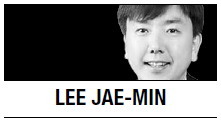In President Barack Obama’s State of the Union address last Tuesday he expressed confidence that the economy was showing strong signs of recovery, as best summarized by his “shadow of crisis has passed” statement. In the hour-long speech, he touched upon many U.S. domestic issues such as child care, immigration, minimum wages and middle-class economics. He also talked about issues of global concern including climate change, cyberterror and the fight against the Islamic State. Interestingly, there were also two paragraphs in his address that showcased a difficult equation that Korea is trying to solve. These paragraphs were on China and on trade negotiation.

Obama’s reference to China in the context of trade was both direct and pointed. Roughly in the middle of his speech, he said that “China wants to write the rules for the world’s fastest-growing region” in a way “that would put (U.S.) workers and (U.S.) businesses at a disadvantage.” He then stated that the U.S. “would (not) let that happen” and that the United States “should write those rules,” to “level the playing field” in the area of global trade.
He then moved on to ask for the Trade Promotion Authority ― namely, fast-track authority to negotiate trade deals under which U.S. Congress can vote only up or down for completed deals. According to Obama, with this authority he would negotiate “new trade deals from Asia to Europe that aren’t just free, but are also fair.”
So, when the two paragraphs are combined, Obama basically says that he needs fast track authority to negotiate trade deals which would keep China at bay in terms of writing new rules on trade. As the 12-nation TPP is the most important U.S. trade agenda at the moment, the fast track authority being requested is to complete the deal on the TPP, which is now entering a wrap-up mode. This authority is critical for getting the participating nations to put the final offer on the table.
Now, some important implications can be gleaned from these statements. First, they signal that the Sino-U.S. rivalry on the trade front will show no signs of letting up in the new year. If anything, Obama’s statement on Tuesday almost admits that one of the major goals of the TPP is to counter the expansion of Chinese influence in this part of the world. And secondly, the Obama administration will pursue trade deals so as not to let China “rewrite” trade rules.
With the new year’s game plan shaping up this way, Seoul will be walking a tightrope in 2015. The new FTA with China will be initialed, signed and put into effect this year. It is not clear whether and how the rules in the trade deal with China are different from the one with the United States, as the China text has not been disclosed yet. Accepting Obama’s statement at face value and assuming that different rules are inserted here and there in the voluminous agreement with China, this situation would then mean for Seoul two different playbooks with the two most important trading partners. Navigating through the myriad of different rules will be a serious challenge, if not entirely impossible.
Not only that, consider also the TPP. Korea has proclaimed its desire to join the TPP. If this plan materializes, and if the TPP turns out to be a vehicle to contain China, again as Obama indicates, the rules-friction or the rules-mismatch, whatever one may call it, will become more conspicuous at that point.
It is like they are playing the same tune under the same name of trade deals, but the rhythms are different. If one has to dance to two different rhythms at the same time, and if the partners are all so important, masterful choreography is everything.
By Lee Jae-min
Lee Jae-min is an associate professor of law at Seoul National University. ― Ed.




![[Grace Kao] Hybe vs. Ador: Inspiration, imitation and plagiarism](http://res.heraldm.com/phpwas/restmb_idxmake.php?idx=645&simg=/content/image/2024/04/28/20240428050220_0.jpg&u=)
![[Herald Interview] Mom’s Touch seeks to replicate success in Japan](http://res.heraldm.com/phpwas/restmb_idxmake.php?idx=645&simg=/content/image/2024/04/29/20240429050568_0.jpg&u=)
